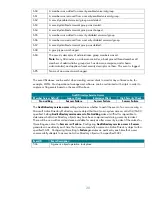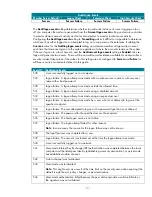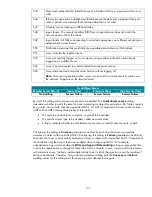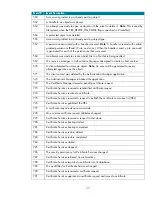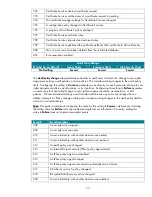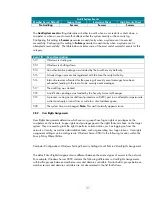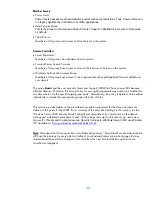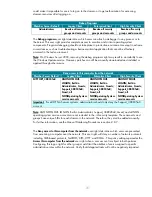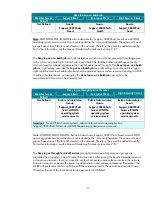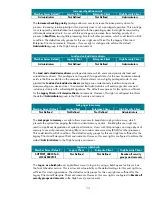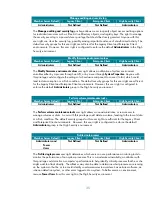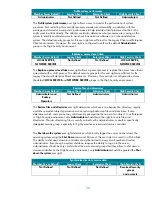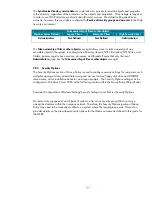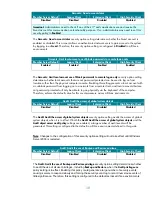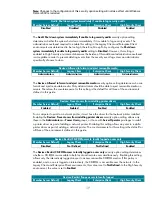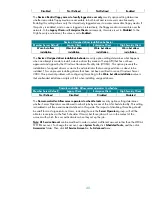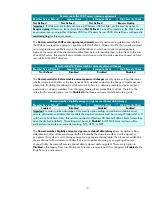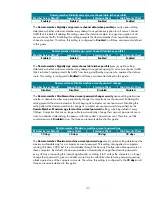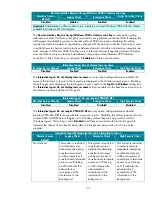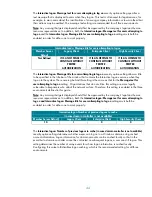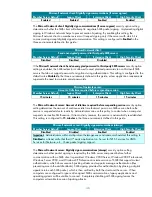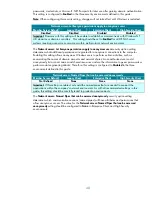
33
Enable computer and user accounts to be trusted for delegation
Member Server Default
Legacy Client
Enterprise Client
High Security Client
Not Defined
Not Defined
Not Defined
Revoke all security
groups and accounts
The Enable computer and user accounts to be trusted for delegation
privilege allows the user to
change the
Trusted for Delegation
setting on a user or computer object in Active Directory. The user or
computer that is granted this privilege must also have write access to the account control flags on the
object. Misuse of this privilege could lead to unauthorized users impersonating other users on the
network.
Force shutdown from a remote system
Member Server Default
Legacy Client
Enterprise Client
High Security Client
Administrators Not
Defined Not Defined
Administrators
The
Force shutdown from a remote system
user privilege allows a user to shut down a computer from
a remote location on the network. Any user who can shut down a computer can cause a DoS
condition; therefore, this privilege should be tightly restricted.
Generate security audits
Member Server Default
Legacy Client
Enterprise Client
High Security Client
NETWORK SERVICE,
LOCAL SERVICE
Not Defined
Not Defined
NETWORK SERVICE,
LOCAL SERVICE
The
Generate security audits
user privilege allows a process to generate audit records in the security
log. The security log can be used to trace unauthorized system access. Accounts that are able to
write to the security log could be used by an attacker to fill that log with meaningless events. If the
computer is configured to overwrite events as needed, the attacker could use this method to remove
evidence of his or her unauthorized activities. If the computer is configured to shut down when it is
unable to write to the security log, this method could be used to create a DoS condition.
Impersonate a client after authentication
Member Server Default
Legacy Client
Enterprise Client
High Security Client
SERVICE, Administrators
Not Defined
Not Defined
Local Service; Network
Service
Assigning the
Impersonate a client after authentication
privilege allows applications running on behalf
of that user to impersonate a client. Requiring this user right for this kind of impersonation prevents an
unauthorized user from convincing a client to connect -- for example, by remote procedure call (RPC)
or named pipes -- to a service that he or she has created and then impersonating that client, which
can elevate the unauthorized user’s permissions to administrative or system levels. The default security
groups for this user right are sufficient for the Legacy Client and Enterprise Client environments.
However, this user right is configured to
Local Service, NETWORK SERVICE
in the High Security
environment.


